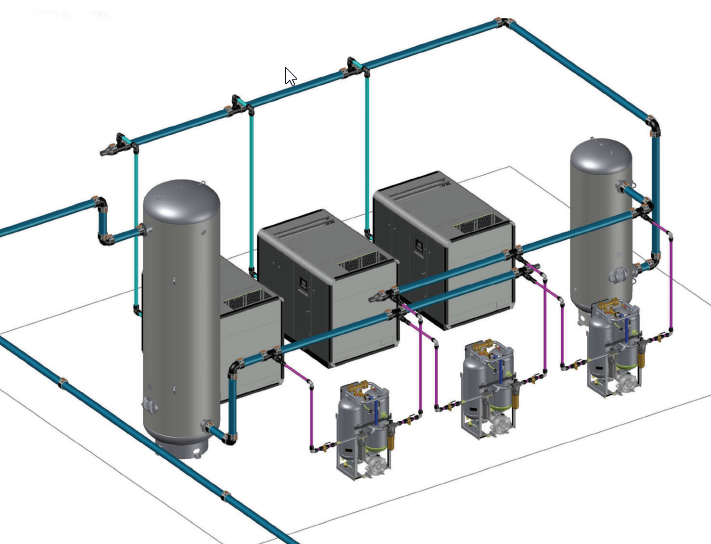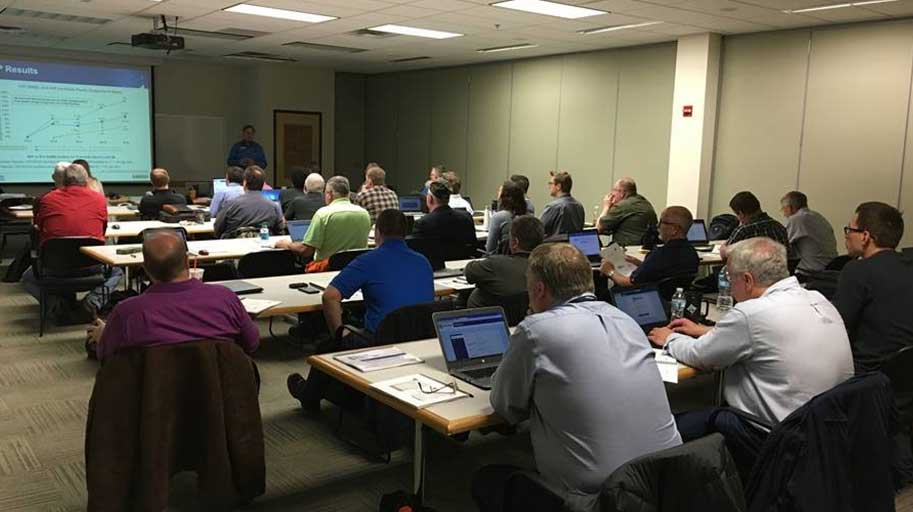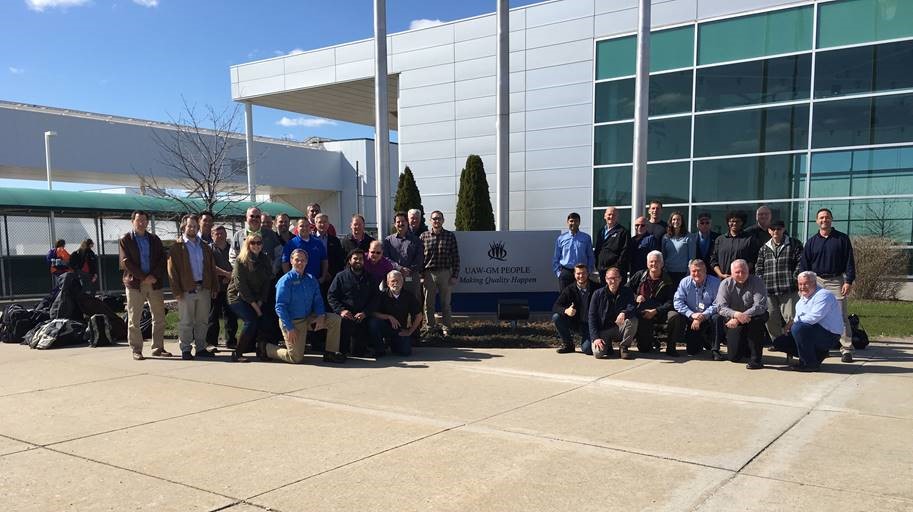Because of the challenges created by the COVID-19 pandemic, manufacturers have been trying to determine how to safely open and operate their manufacturing plants. To minimize the risk of infection, many manufacturers have reduced the number of people allowed into their plants without compromising the production continuity. This makes it challenging to deliver INPLTs in the traditional in-person fashion. To address this challenge and continue providing INPLTs during this difficult time, Better Plants program piloted Virtual cohort In-Plant Trainings (VINPLTs) on ammonia industrial refrigeration systems and wastewater treatment operations in October and November of 2020. The VINPLT pilot was very well received, and participants requested for additional trainings on more topics.
The Better Plants program will deliver a VINPLT on compressed air systems (CAS) systems from August 13th to October 8th, 2021. The CAS VINPLT will be performed by industrial experts and Technical Account Managers using online video communication technologies. The CAS VINPLT comprises eight (8) 2.5-hour online training sessions (2-hours formal training and optional 0.5-hour Q&A) that will be delivered every Friday (except Sep 3rd) 10:00AM–12:30PM ET for eight (8) weeks. Participating in this VINPLT is free and open to all the Better Plants program partners. This VINPLT event is limited to 25 participants from 6–8 companies or facilities.
Participants will be trained on compressed air systems fundamentals and undertaking of a typical compressed air energy assessment, including virtual hands-on training on the DOE compressed air software tool. To maximize the benefits from attending VINPLTs, homework assignments will be given to the participants at the end of each session and will be due by the next session. These homework assignments are designed to enhance participants’ understanding on the compressed air systems, as well as to identify and quantify energy savings opportunities. During the last session of the VINPLT, participants are expected to create a summary presentation based on their assessment, present their findings, and share the scrubbed version with DOE.
At the completion of the VINPLT, Professional Development Hours (PDHs) Certificates will be prepared for the attendees on a demand basis. Participants are expected to collect measurements/data from their own compressed air systems, perform an assessment, and identify energy efficiency opportunities with help from the instructors. To collect the assessment data, diagnostic equipment can be arranged and shipped to the partners. The Better Plants diagnostic equipment are available on a first come, first serve basis.
Aug 13 to Oct 8, 2021; Every Friday (Except Sep 3rd) 10:00AM–12:30PM ET (2.0-hour formal training + optional 0.5-hour Q&A)
Week 1 – Compressed Air Systems Basics; August 13, 2021
- Training experts introduce the rationale for system-specific in-plant trainings, describe the overall process of conducting a compressed air system assessment, provide an overview of the fundamentals of compressed air systems and fluid relationships, and describe the pre-screening process used during an assessment.
Week 2 – Compressor Types; August 20, 2021
- Training experts will continue with an in-depth discussion on CAS assessment methodology. A discussion on the various types of compressors will be reviewed. Maintenance is discussed.
Week 3 – Compressor Controls; August 27, 2021
- Training experts will discuss different types of compressor capacity controls and how to efficiently match supply to demand. Positive Displacement and Dynamic controls. Review the pros and cons of pressure flow control valves. Demonstrate the CAS assessment module within DOE compressed air software tool.
No classes on September 3, 2021
Week 4 – Air Treatment; October 1, 2021
- VINPLT attendees will learn how misconceptions about air quality levels can affect compressed air system performance. Dryer types and Dew Point are discussed. VINPLT attendees finalize their assessments within the DOE compressed air software tool.
Week 5 – Distribution System; September 10, 2021
- Training experts and VINPLT attendees review the correct method of pipe sizing and layout options. Discussions of velocity and how a pressure profile can be constructed from measurement data.
Week 6 – Demand Side; September 17, 2021
- The experts present various methods of energy-saving measures and their applicability for the industrial CAS equipment. What is an inappropriate use of air? How much heat does an air compressor generate? How to ventilate a compressor room.
Week 7 – System Volume vs Storage; September 24, 2021
- VINPLT attendees focus on applications that consume a relatively high volume of air for short durations of time (sometime called “events”) and how to minimize them. A common solution to high volume, intermittent needs is compressed air storage. Learn the math behind calculating air storage.
Week 8 – Wrap-up Presentations; October 8, 2021
- VINPLT attendees present and discuss the results from their virtual CAS assessment. VINPLT participants could invite their upper management to attend the wrap-up session. Once completed, VINPLT attendees are given a Certification of Completion from US DOE.
 Frank Moskowitz
Frank Moskowitz
Mr. Frank Mokowitz has an extensive background with over 40 years’ experience in plant engineering. He has a degree in mechanical engineering and education, including the refrigeration, electrical, plumbing trades. For the past 30 years, Frank has been an associate of Draw Professional Services primarily in the auditing, consulting, training and system design fields. His specialty consists of Compressed Air Systems (oil flooded and oil free), Vacuum Systems, Contaminate Removal, System Design and Energy Management.
Frank is a Compressed Air Challenge instructor for the Fundamentals and Advanced level of training, an AIRMaster+ instructor and a Department of Energy and CAGI expert on compressed air systems. Frank is also Vice-Chair for ASME Standard EA-4-2010 “Energy Assessment for Compressed Air Systems”; and is a member of International Standards Organization (ISO) technical committee for Air Compressors and compressed air systems energy management; TC118/SC6/WG4




